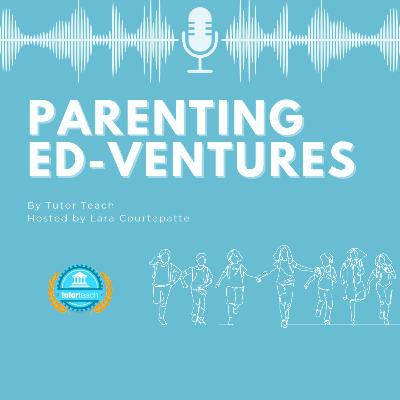After-School Meltdowns, Explained: A Neurodiversity-Affirming Fix
Description
What if your child isn’t “difficult”—they’re different?
If you’re navigating meltdowns after school, confusing terminology from professionals, or the constant worry that you’re “missing something,” this episode will feel like a deep breath.
Today, Lara sits down with Ruth M. Strunz, RP, CCC—a Registered Psychotherapist, Canadian Clinical Counsellor, and Clinical Supervisor who specializes in neurodiversity-affirming, attachment-based therapy for individuals and families. Ruth works extensively with cross-neurotype relationships (when one person is neurotypical and the other is neurodivergent), helping parents and kids understand each other and move from friction to connection. Ruth Strunz
Ruth breaks down the most misunderstood terms—neurodiverse, neurodivergent, neurotypical—in plain language and shows parents how to build skills in advocacy (at home, at school, and with providers). We dig into the power of co-regulation, how to recognize sensory and executive-function stressors, and when to bring in outside support. Ruth also shares insights from her new book, Neurodiversity-Affirming Psychotherapy: Clinical Pathways to Autistic Mental Health, a trauma-informed, attachment-based resource that’s invaluable for clinicians, educators, and parents alike. Ruth Strunz
If you’ve ever thought, “My child is smart, but school is exhausting,” or “I don’t know what to ask for at the IEP meeting,” this episode gives you language, lenses, and next steps you can use right away. In this episode we cover:
Decoding the terms: neurodiverse vs. neurodivergent vs. neurotypical—what parents actually need to know.
From battles to bridges: using attachment and co-regulation to reduce daily power struggles.
Advocacy 101 for parents: how to prepare for school meetings, what to ask, and when to escalate.
Sensory + executive function realities: spotting overload early and creating predictable supports at home and in class.
Cross-neurotype communication: scripts and micro-shifts that lower shame and raise understanding.
When to get extra help: red flags that signal you’ll benefit from an outside therapist or coach—and how to choose one.
Meet our guest: Ruth M. Strunz, RP, CCC is a Registered Psychotherapist, Canadian Clinical Counsellor, and Clinical Supervisor. She provides psychotherapy, play-based therapy, parent counselling, clinical supervision, and professional training—both in person and virtually. Her practice centers on neurodiversity-affirming, trauma-informed, attachment-based approaches for autistic and otherwise neurodivergent individuals and their families, with a special focus on cross-neurotype relationships. Ruth Strunz
She is the author of Neurodiversity-Affirming Psychotherapy: Clinical Pathways to Autistic Mental Health, offering a practical, clinician-friendly framework that also empowers parents and educators to better understand autistic mental health. Ruth Strunz
Resources and Links:
Ruth’s website (services, approach, trainings, supervision) – see offerings and contact info. Ruth Strunz
Ruth’s book: Neurodiversity-Affirming Psychotherapy: Clinical Pathways to Autistic Mental Health. Ruth Strunz
Follow Ruth on Instagram or LinkedIn for upcoming trainings and insights. Ruth Strunz
Who this episode is for
Parents who are:
feeling stuck in a loop of reminders, resistance, and after-school meltdowns,
unsure how to translate professional jargon into real-life support,
preparing for IEP/IPP meetings and want to advocate without burning bridges,
ready to swap “fixing” their child for supporting their child.
Key takeaways for parents
You don’t need perfect strategies—you need attuned, co-regulated ones.
Behaviour is communication; look for sensory/executive-function roots before discipline.
Advocacy is a learnable skill: prepare your asks, document patterns, and build a calm, consistent paper trail.
Attachment > compliance: relationship safety is the fast track to long-term skill growth.





